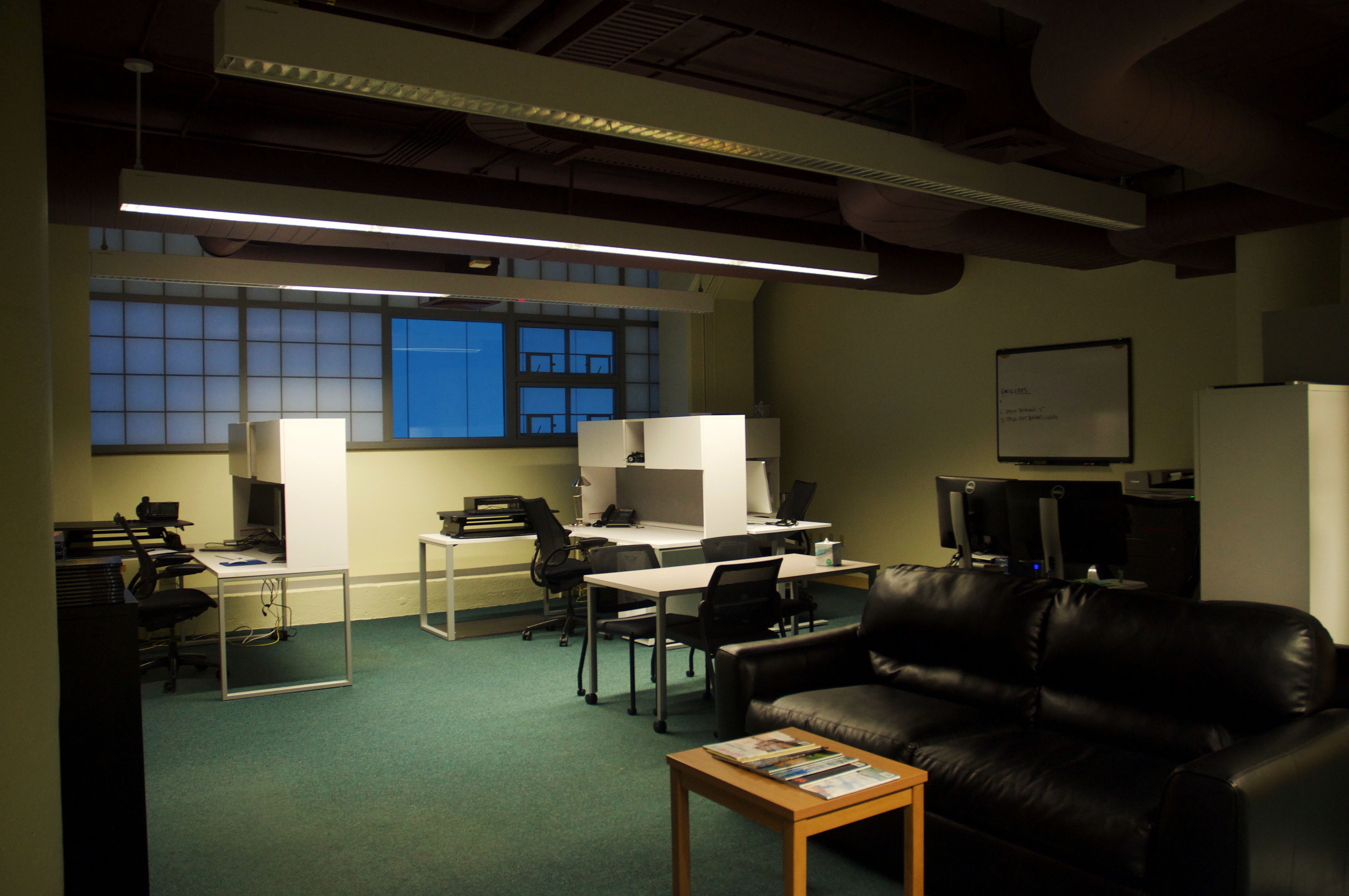Emily Adams, Contributor
The Center for Technology and Enhanced Learning (CTEL), located on the Portland campus, is working with faculty to further develop both online and blended (both online and in person), courses.
“[They] collaborate [by] providing course design support and training in commonly used course technologies,” said Paul Cochrane, the department head of CTEL.
On USM’s website, under CTEL, they have various resources available to professors and faculty such as grants, workshops offered and information about electronic resources for students. CTEL offers grants to support teaching and learning initiatives that will lead to higher quality learning experiences for the students at USM.
Professor Russell Kivatisky, the head of the Communications and Media Studies department (CMS), has stated that they are working closely with CTEL to make online learning easier to navigate and access for their majors. They are in the process of making the move out of the classroom and into the online format. As of right now, it is only the Communications major and not the Media Studies major that is moving online.
Their partnership is also allowing the incorporation of more core curriculum classes and majors into online programs. CTEL awarded the CMS department with the Sloan Foundation Grant. This grant, among others offered, can be used to learn more about the online community, the transition or even to fund the setup of a major online. As part of the grant’s guidelines, both individually and collectively, members of the CMS department attended multiple workshops and conferences. The conferences the CMS department took part of “had to do with course design and research related to online students” stated Kivatisky.
The Communications major is just the beginning of a new world of online learning. By offering grants and workshops, CTEL is encouraging professors and entire departments to consider online courses. Academic departments are working with CTEL to setup courses online, and are accepting grants to assist them with that. For example, Dr. Michael Stevenson, a faculty member in the Psychology department, accepted a grant from CTEL to purchase a new iPad.
“We were just kind of playing around with various kinds of video software. It was helpful to have the little grant to get me this piece of equipment that made it easier for me to do the work that I’m doing,” said Dr. Stevenson.
Dr. Stevenson currently teaches four online courses through USM and is actively involved in with the University College Faculty Institute, which which is hosting an event at the University of Maine at Augusta. According to the USM website, under the CTEL tab, the University College Faculty Institute “gives UMS faculty, academic staff and campuses a platform to share their ideas and advice about teaching with their colleagues. It is an opportunity to highlight your own successes and develop new strategies for dealing with educational challenges.”
According to Dr. Stevenson, the University College Faculty Institute entails a full day of workshops, and it has experts from all over the University of Maine system (UMS). He described the day as a time when UMS faculty are invited to propose workshops and different ideas. This year, Dr. Stevenson will be proposing set rubrics to help make the grading process of online courses more efficient.
Electronic resources, such as E-reserve can be found on the USM’s website under the library page, there are also direct links to it on CTEL’s page. E-reserve is utilized by faculty for courses that take place both online and in person. Dr. Stevenson stated that he utilizes E-reserve with his online psychology courses so students have access to a chapter of a book or an article needed for the course.
“I think they’re doing a great job, you know it would always be great to have more people for CTEL to work with faculty,” Dr. Stevenson stated. “I certainly have appreciated the support I have gotten from that office.”
Dr. Stevenson said that CTEL is doing an amazing job with the resources they have to help both faculty and students with course design and accessibility. Professor Kivatisky has utilized CTEL’s resources and has found the curve of achievement is the same for both in-class and online courses.
Many students have to work full-time and have limited availability during the week due to a job or other commitments. It is because of the everyday circumstances individuals face, that online courses and online majors are becoming increasingly more important and sought after. CTEL recognizes this, and works with faculty and professors to offer courses, majors and resources online.

